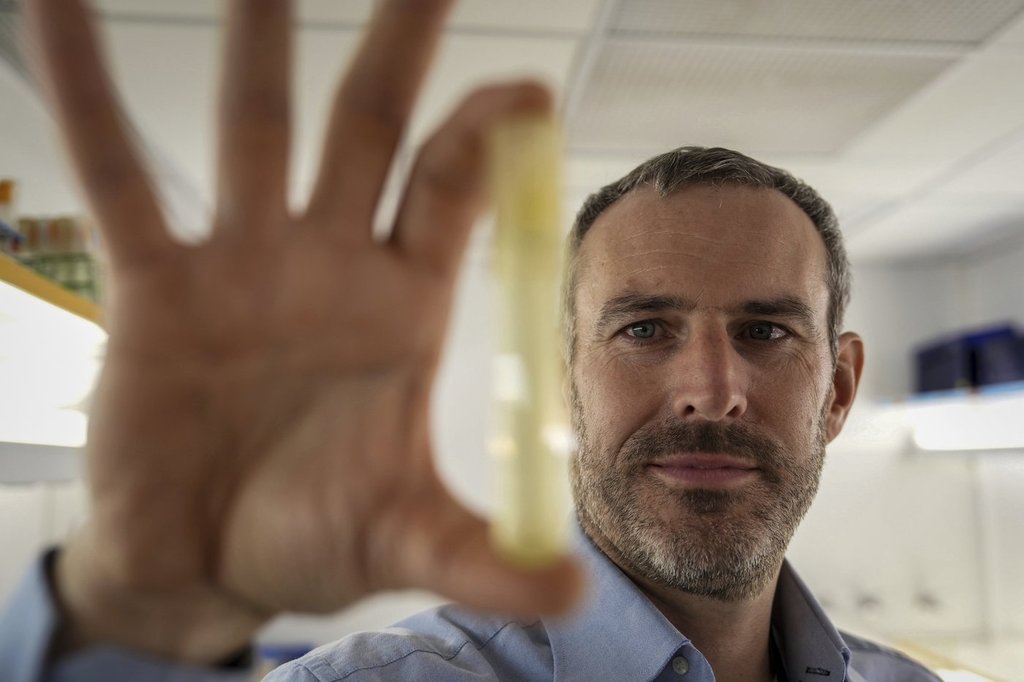World
Warming Oceans Threaten Prochlorococcus, Key Marine Microbe

Researchers have discovered that rising sea temperatures pose a significant threat to Prochlorococcus, the smallest and most abundant phytoplankton species on Earth. A study published in the journal Nature Microbiology indicates these microscopic organisms, crucial for marine ecosystems and climate regulation, could see their populations decline by as much as 50% in tropical oceans over the next 75 years if surface temperatures exceed approximately 27.8 degrees Celsius (82 degrees Fahrenheit).
As global temperatures rise, many tropical and subtropical waters are already exceeding average levels and are projected to regularly surpass 30 degrees Celsius (86 degrees Fahrenheit) during this period. “These are keystone species — very important ones,” said François Ribalet, lead author of the study and a research associate professor at the University of Washington School of Oceanography. “When a keystone species decreases in abundance, it always has consequences on ecology and biodiversity. The food web is going to change.”
Prochlorococcus thrives in up to 75% of the sunlit surface waters of the ocean. These organisms are vital, contributing about one-fifth of the planet’s oxygen through photosynthesis, while also forming the base of the marine food chain. Ribalet highlighted their significance: “In the tropical ocean, nearly half of the food is produced by Prochlorococcus. Hundreds of species rely on these guys.”
Despite the potential for other forms of phytoplankton to compensate for their loss, Ribalet cautioned that these organisms may not provide adequate substitutes. “Evolution has made this very specific interaction,” he explained. “This is going to have an impact on this very unique system that has been established.”
The findings challenge previous assumptions that Prochlorococcus would thrive in warmer waters. Early predictions were based on limited laboratory data; however, Ribalet and his team conducted extensive fieldwork, collecting water samples across the Pacific Ocean over a decade. Their research included data from over 100 research cruises, equivalent to six circumnavigations of the globe, which allowed them to count approximately 800 billion individual cells from samples taken at every kilometer.
Using a custom-built device called SeaFlow, Ribalet’s team could continuously analyze seawater in real time, leading to an unprecedented count of Prochlorococcus. “We have counted more Prochlorococcus than there are stars in the Milky Way,” he remarked.
The implications of this research are alarming, according to experts. Paul Berube, a research scientist at the Massachusetts Institute of Technology who studies Prochlorococcus, noted that the breadth of data collected is groundbreaking. He stated, “They’re at the very base of the food web, and they feed everything else — the fish eat the things that eat the phytoplankton and we eat the fish. When changes are being made to the planet that influence these particular organisms that are essentially feeding us, that’s going to have big consequences.”
To explore whether Prochlorococcus might develop heat tolerance, Ribalet’s team modeled a hypothetical heat-tolerant strain. Their findings suggested that even such adaptations would likely not suffice to withstand the highest temperatures anticipated under ongoing greenhouse gas emissions. Ribalet emphasized the conservative nature of their projections, which do not account for other ecological stressors such as plastic pollution. “We actually tried to put forth the best-case scenario,” he explained. “In reality, things may be worse.”
The potential decline of Prochlorococcus raises significant concerns for biodiversity and fisheries. Steven Biller, an associate professor at Wellesley College, described the potential impacts as “scary but plausible.” He highlighted their role as part of the “invisible forests” of the ocean—tiny, often overlooked organisms that are critical for human survival. “Half of all photosynthesis is happening in the oceans, and Prochlorococcus is a really important part of that,” Biller stated.
Ribalet and his colleagues emphasize the importance of addressing climate change to mitigate these risks. “We know what drives global warming. There is no debate among the scientific community,” he asserted. He hopes their findings will draw more attention to tropical oceans, which could serve as early warning signals for ecological collapse.
For Ribalet, the desire to be proven wrong about these findings is strong. “For the first time, I want to be wrong. I would love to be wrong,” he said. “But these are data-driven results.”
This research highlights the urgent need for action to curb greenhouse gas emissions and protect marine ecosystems that are foundational to life on Earth.
Follow Annika Hammerschlag for more updates. The Associated Press receives support from the Walton Family Foundation for coverage of water and environmental policy, but is solely responsible for all content. For further environmental coverage, visit [AP News Climate and Environment](https://apnews.com/hub/climate-and-environment).
-

 World3 months ago
World3 months agoScientists Unearth Ancient Antarctic Ice to Unlock Climate Secrets
-

 Entertainment3 months ago
Entertainment3 months agoTrump and McCormick to Announce $70 Billion Energy Investments
-

 Lifestyle3 months ago
Lifestyle3 months agoTransLink Launches Food Truck Program to Boost Revenue in Vancouver
-

 Science3 months ago
Science3 months agoFour Astronauts Return to Earth After International Space Station Mission
-

 Technology2 months ago
Technology2 months agoApple Notes Enhances Functionality with Markdown Support in macOS 26
-

 Top Stories2 weeks ago
Top Stories2 weeks agoUrgent Update: Fatal Crash on Highway 99 Claims Life of Pitt Meadows Man
-

 Sports3 months ago
Sports3 months agoSearch Underway for Missing Hunter Amid Hokkaido Bear Emergency
-

 Politics3 months ago
Politics3 months agoUkrainian Tennis Star Elina Svitolina Faces Death Threats Online
-

 Technology3 months ago
Technology3 months agoFrosthaven Launches Early Access on July 31, 2025
-

 Politics3 months ago
Politics3 months agoCarney Engages First Nations Leaders at Development Law Summit
-

 Entertainment3 months ago
Entertainment3 months agoCalgary Theatre Troupe Revives Magic at Winnipeg Fringe Festival
-

 Politics2 weeks ago
Politics2 weeks agoShutdown Reflects Democratic Struggles Amid Economic Concerns





















